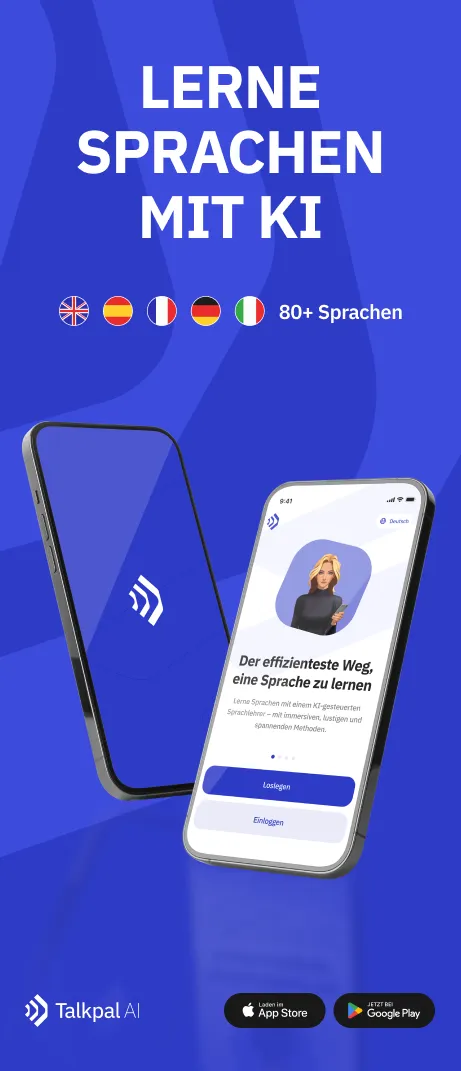Allgemeine Vokabeln
1. Accomplish – etwas erreichen oder vollenden. Beispiel: „She was able to accomplish all her goals this year.“
2. Acquire – etwas erwerben oder sich aneignen. Beispiel: „He managed to acquire a lot of knowledge in a short time.“
3. Ambiguous – mehrdeutig oder unklar. Beispiel: „The instructions were quite ambiguous.“
4. Analyze – analysieren oder untersuchen. Beispiel: „We need to analyze the data before making a decision.“
5. Approximate – ungefähr oder annähern. Beispiel: „The approximate cost of the project is $5000.“
Beruf und Karriere
6. Colleague – Kollege oder Kollegin. Beispiel: „I had a meeting with a colleague from another department.“
7. Entrepreneur – Unternehmer/in. Beispiel: „She is a successful entrepreneur with several businesses.“
8. Expertise – Fachwissen oder Expertise. Beispiel: „His expertise in marketing is well-known.“
9. Hierarchy – Hierarchie. Beispiel: „The company has a very strict hierarchy.“
10. Incentive – Anreiz oder Motivation. Beispiel: „The company offers various incentives to its employees.“
Bildung und Wissenschaft
11. Hypothesis – Hypothese. Beispiel: „The scientist proposed a new hypothesis.“
12. Interpretation – Interpretation oder Deutung. Beispiel: „His interpretation of the poem was quite unique.“
13. Phenomenon – Phänomen. Beispiel: „Global warming is a well-documented phenomenon.“
14. Thesis – These oder Abschlussarbeit. Beispiel: „She is working on her thesis for her PhD.“
15. Validate – validieren oder bestätigen. Beispiel: „We need to validate the results through further testing.“
Gesellschaft und Kultur
16. Diversity – Vielfalt. Beispiel: „The city’s diversity is one of its greatest strengths.“
17. Ethnicity – Ethnizität. Beispiel: „The festival celebrates the ethnicity of the local population.“
18. Norm – Norm oder Standard. Beispiel: „Social norms vary from culture to culture.“
19. Stereotype – Stereotyp. Beispiel: „It’s important to challenge common stereotypes.“
20. Tradition – Tradition. Beispiel: „The family has a long tradition of celebrating holidays together.“
Gesundheit und Wohlbefinden
21. Anxiety – Angst oder Sorge. Beispiel: „She suffers from severe anxiety.“
22. Diagnosis – Diagnose. Beispiel: „The doctor gave him a diagnosis of flu.“
23. Immunity – Immunität. Beispiel: „Vaccination helps to build immunity against diseases.“
24. Nutrition – Ernährung. Beispiel: „Good nutrition is essential for a healthy life.“
25. Therapy – Therapie. Beispiel: „She is undergoing therapy for her condition.“
Reisen und Abenteuer
26. Destination – Reiseziel. Beispiel: „Our final destination is Paris.“
27. Itinerary – Reiseplan. Beispiel: „The tour guide gave us the itinerary for the trip.“
28. Landmark – Wahrzeichen. Beispiel: „The Eiffel Tower is a famous landmark.“
29. Scenic – malerisch. Beispiel: „We took the scenic route through the mountains.“
30. Souvenir – Souvenir oder Andenken. Beispiel: „I bought a souvenir to remember my trip.“
Technologie und Innovation
31. Algorithm – Algorithmus. Beispiel: „The new algorithm improves search results.“
32. Encryption – Verschlüsselung. Beispiel: „Data encryption is crucial for security.“
33. Interface – Schnittstelle. Beispiel: „The user interface is very intuitive.“
34. Prototype – Prototyp. Beispiel: „They developed a prototype of the new device.“
35. Virtual – virtuell. Beispiel: „Virtual reality is becoming more popular.“
Umwelt und Natur
36. Biodiversity – Biodiversität. Beispiel: „The rainforest is home to incredible biodiversity.“
37. Conservation – Erhaltung oder Naturschutz. Beispiel: „Conservation efforts are critical to protect endangered species.“
38. Ecosystem – Ökosystem. Beispiel: „Pollution can disrupt the balance of an ecosystem.“
39. Renewable – erneuerbar. Beispiel: „Renewable energy sources are essential for the future.“
40. Sustainability – Nachhaltigkeit. Beispiel: „Sustainability practices are important for preserving the environment.“
Wirtschaft und Finanzen
41. Asset – Vermögenswert. Beispiel: „Real estate is considered a valuable asset.“
42. Inflation – Inflation. Beispiel: „The government is trying to control inflation.“
43. Investment – Investition. Beispiel: „He made a significant investment in the stock market.“
44. Revenue – Einnahmen. Beispiel: „The company’s revenue increased last year.“
45. Subsidy – Subvention. Beispiel: „The government provides subsidies for renewable energy.“
Wichtige Verben
46. Negotiate – verhandeln. Beispiel: „They had to negotiate the terms of the agreement.“
47. Predict – vorhersagen. Beispiel: „It is difficult to predict the outcome of the experiment.“
48. Recommend – empfehlen. Beispiel: „Can you recommend a good book?“
49. Resolve – lösen oder klären. Beispiel: „They managed to resolve their differences.“
50. Verify – überprüfen oder verifizieren. Beispiel: „We need to verify the information before publishing it.“
Diese Liste von 50 wichtigen Wörtern wird Ihnen helfen, Ihr Englisch auf das C1-Niveau zu bringen. Es ist wichtig, diese Wörter nicht nur zu kennen, sondern auch zu wissen, wie man sie in verschiedenen Kontexten richtig verwendet. Üben Sie, indem Sie Sätze bilden und versuchen, diese Wörter in Ihren täglichen Gesprächen und beim Schreiben zu integrieren. Mit kontinuierlichem Üben und Engagement werden Sie bald in der Lage sein, Englisch auf einem fortgeschrittenen Niveau fließend zu sprechen und zu verstehen.










